I’m starting a new blog series about something that affects every one of us: observations! Whether you love or tolerate them, we all have strong feelings about educator observations. In part one of this series, I’ll be sharing tips and tricks for music teachers to have a successful observation experience!
Know Your Observation Requirements
Ok, I get it. Make your classroom cute or know your observation requirements? Work on your lesson plans or know your observation requirements? Knowing your observation requirements might not feel like the most urgent need when you are balancing everything else you are responsible for but your observation has a direct impact on your employment, so make it a priority.
Observations seem to be a moving target as districts change protocols or new administrators come to your building. Whether you are new in your district, or a veteran, here are some questions you may want to ask.
- Does your school or district use a specific model, such as Marzano or Danielson? Do they have their own system for observations?
- Do they require scheduled, formal observations? Walk-throughs? Both?
- Do you need turn in a goal? And if so, what is the deadline? Are there official forms you are to use to submit your goal or lesson plan?
- Is there a taxonomy that you need to refer to?
- Are you to use/post learning targets? Standards? Student scales?
Knowing your school’s observation requirements from the start of the school year will help you begin with the end in mind. This will give you time to process the requirements and make adaptations to meet the instructional goals your district has set forth.
Know Your Administrator’s Expectations
Once you know your district’s observation requirements, the next step is to know what you administrator expects from you. As much as districts try to eliminate bias from the evaluation process, the reality is that it exists. So connecting with your administrator may help you to know exactly what they are prioritizing in an observation.
- Will you have an opportunity to meet before the observation to discuss the lesson you will present?
- Will you have an opportunity to meet after the observation to discuss the lesson you presented?
- Would your admin prefer to see a lesson that demonstrates a variety of learning targets being taught?
- Would your admin prefer to see a lesson where you go deep in one area of your curriculum?
- What would they expect to see in a successful lesson? What evidence would they see to know it was successful?
I think that last question is so important. It helps you to understand their priorities when observing staff. Is the priority that everyone is engaged? Is it that you connect with students and have a great rapport with them? Is it that you individually assess and get feedback on every student? Or do they expect to see ALL of that? Don’t be afraid to ask what they value in a successful lesson.
Be Your Own Advocate
I think the hardest part about being a music teacher is that you are usually the only one in the building that knows your content. We’ve all experienced comments by well-intentioned colleagues who think it must be nice to “sing and play all day.” Yes, it is great to sing & play all day but we all know that’s not what really happens in the music room, so learn to advocate for you and your program.
- Let your admin know you teach multiple subjects under the umbrella of music (melody, rhythm, form, harmony, expressive elements, cultural/historical context, creativity, and performance skills).
- Ask if they would prefer to see a lesson where you go deep in one subject (e.g. a lesson on rhythm) vs. a traditional lesson where you address multiple subjects in music (e.g. melody, rhythm, movement, creativity).
- Use an educational taxonomy to be able to convey what you teach more effectively. We all know how complex and layered our instruction is but sometimes we’re not so good at explaining it to others. Many of us know about Bloom’s Taxonomy, but there are others that may be more useful to you. I refer to Webb’s Depths of Knowledge and Marzano’s taxonomy when communicating about my instruction to admin.
- Be proactive in scheduling your observation. I’ve read time and time again of music teachers being observed during a final rehearsal. For many admin, the performance is the pinnacle of the music learning experience but what they may not realize is most of the “process” has occurred and that final rehearsal is really just the smoothing out the final product. No admin would go to a science fair or spelling bee to do a formal observation for a classroom teacher. They need to understand the same is true for music teachers and final rehearsals/performances.
Be Reflective and Open to Feedback
Lastly, no matter how amazing you are as an educator, we are all going to get feedback about our instruction from our admin. Come with an open mind to your post observation meeting. In spite of all we do, we cannot possibly see all and know all in our classroom. Our admin will see and notice things that we may not because we’re so focused on the group. Accept the feedback graciously, but also know in your own reflection of the lesson that not everything is going to be an instructional match. Here’s the reality – a great admin will recognize good teaching regardless of content.
If you feel your feedback is negative, be proactive and ask for a mentor to help you. Is it possible to have another music teacher or fine arts supervisor do an informal observation? Is it possible for you to go observe.a master teacher in your building or district? Don’t be afraid to ask for help. My greatest moments of growth are not when everything went perfect. It’s in the mistakes and failures that I strive to be my personal best.
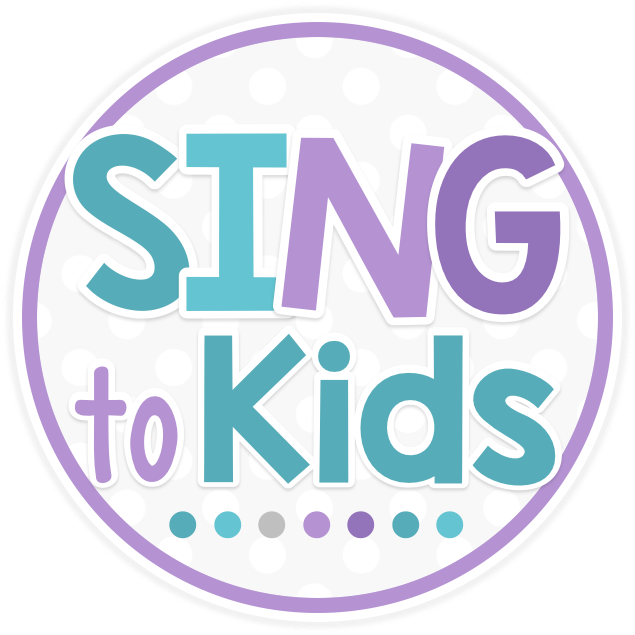
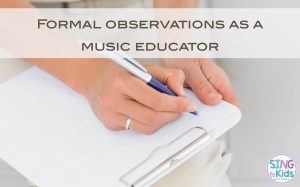
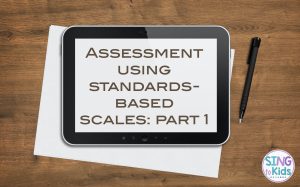
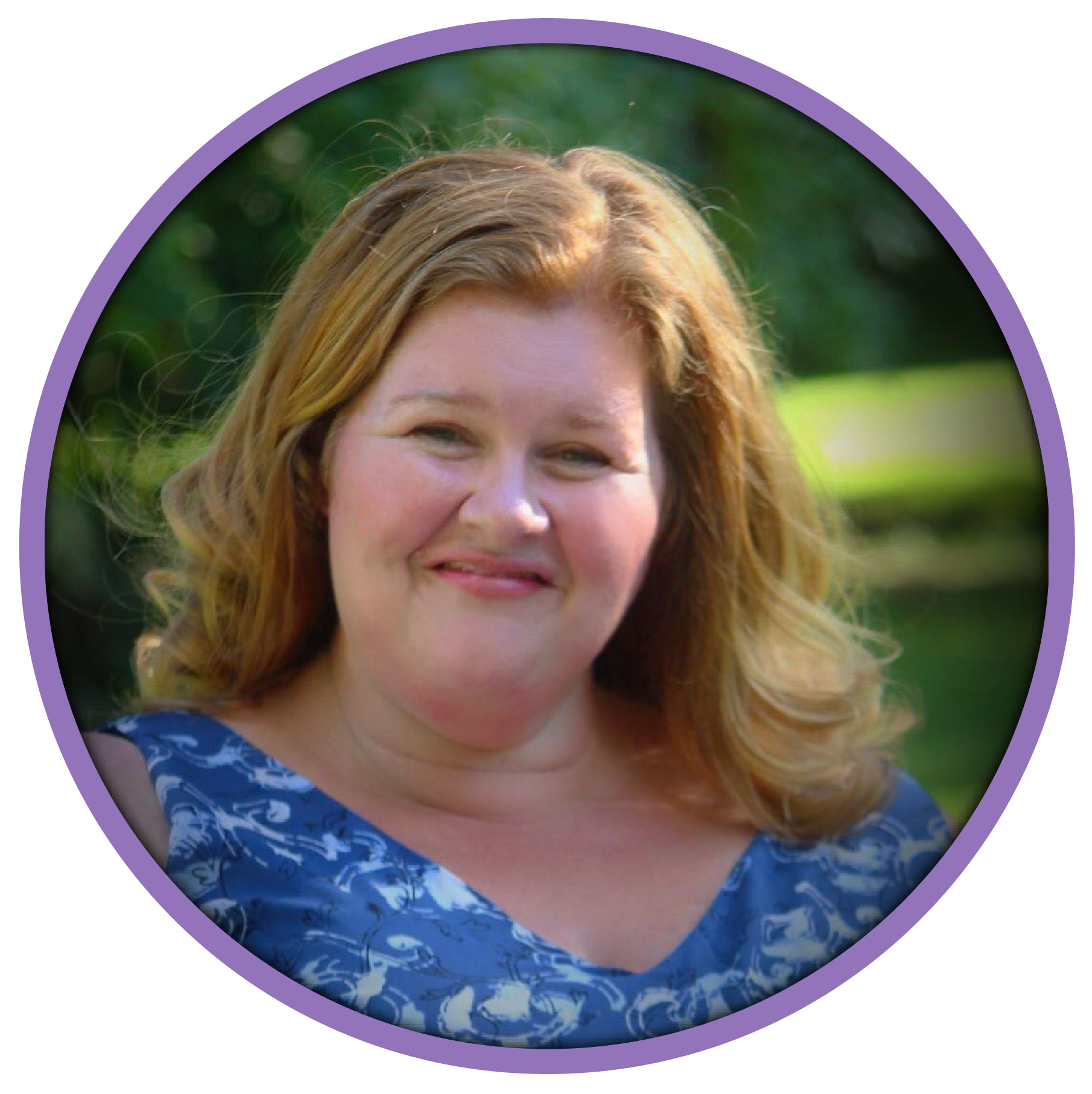
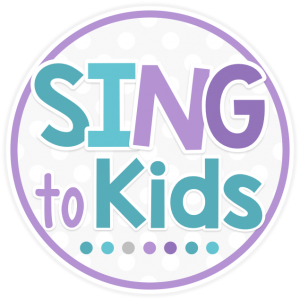
I am about to receive my formal observation. I am expected to select one area for the lesson and stick to that. Example: if teaching rhythm patterns one and two sounds, stick to that. Don’t talk about a composer or work in singing. I have been told I fill the lesson with too much. I am thinking about doing my observation with kindergarten music. The focus would be animal rhythms. We just finished steady beat and thought the next step would be rhythm. Any advice or suggestions would be appreciated